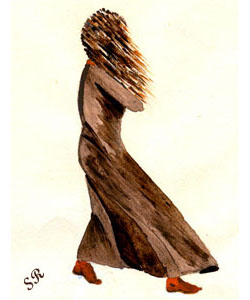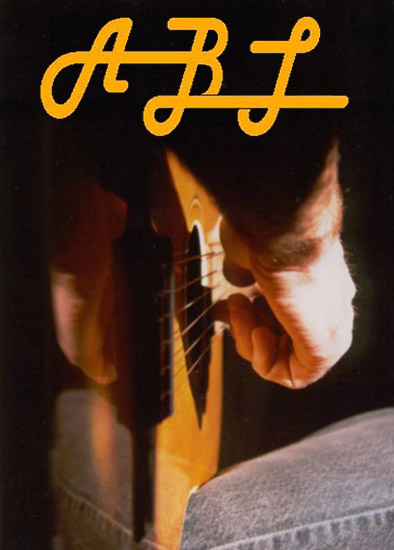|
Column Archive |
||
September, 2007 |
"Plagarism" |
by Webmaster |
|
| Sometimes I hear or read something that inspires a song. I wrote songs based on the title of book and a magazine article before I read the article; I didn't read the book. Just the titles inspired me. Last year, I wrote lyrics to a song based on a 35-year-old memory of a James Dickey poem. His poem was based on a newspaper account. Several years ago, I wrote a song based on the content of a newspaper article. So did Gordon Lightfoot when he wrote "The Wreck of the Edmund Fitzgerald." I've heard phrases in other songs that inspire me to write a song that is my own interpretation and execution of an general idea. Songwriters have to get their ideas somewhere. I heard or read songwriting advice to watch daytime T.V. and listen for phrases that trigger ideas for songs. We're lucky when an inspiration is clearly identifiable. I made sure I did not read the book or magazine article before I wrote the song when the title inspired me. I went back to the James Dickey poem after I wrote my song. I didn't steal from James Dickey. The basic concept for his poem and my song goes back to the newspaper article. Making art out of a tragedy was James Dickey's idea. The details and execution of that general idea in my song were all mine.
Our subconscious minds have access to information that we don't remember. It includes all of our experiences: what we've heard, what we've seen, what we've felt, what we've read. It enables us to learn from our experiences and react without having to consciously remember everything and process it to see if it's applicable. Sometimes we call this subconscious memory "instinct" or "good judgement" or "common sense." Sometimes we call it "inspiration." If what we read or heard subconsciously inspires us to create a painting, there is no problem. If a photograph subconsciously inspires a song, there is no problem. If a song subconsciously inspires another song, there could be a problem. It's called plagiarism. If the song makes enough money, the songwriter could be sued.
We're aware that there are only 12 tones in an octave, at least in the "normal" scale we're used to. At some point, we run out of original melodies. How many times have you listened to one song and heard musical phrases that are reminiscent of another song? I once wrote a hymn that I thought was totally original. I performed it at a jam and was told, "That's 'Amazing Grace' with new words." Duh. And, there are all those songs in the public domain that are used over again with new lyrics. That practice goes back centuries: folk tunes were used as motifs in symphonic music. 'What Child Is This?" and "Greensleeves" have the same melody. David Wilcox borrowed the tune from a Child Ballad for one of his songs. Gordon Lightfoot borrowed an Irish tune, "I Wish I Was Back Home In Derry," for "The Wreck of the Edmund Fitzgerald." You'd think with 26 letters forming thousands of words, that it would be more difficult to accidentally write something just like something someone else wrote. It might be tantamount to all those monkeys with typewriters writing Shakespeare. It's possible but not likely. However, as Lavigne wrote, "All songs share similar lyrics and emotions." I heard or read somewhere that in all the literature (books, short stories, plays, poems, songs) in the world, there are only 7 distinct themes. "West Side Story" has the same theme as "Romeo and Juliet." The execution of the theme is distinctly different in each play. When we're writing a song about a universal theme, it's far more likely we'll duplicate something someone else came up with. It might be a title. It might be a phrase ("five words!"). It might be a whole verse, or even a whole song. I worry about that when I write a song too easily: am I creating someting new or remembering something I heard and can't consciously remember? That's probably why successful songwriters don't like to accept song demos. They put themselves at risk of being sued even if they never listen to the demo. At least I can Google songs and find out if someone else already wrote them. It's not infallable, but its a start. Fortunately, the copyright and patent laws apply to the execution of a work and not to the idea behind the work. Ideas are usiversal. Songs, plays, inventions, novelettes, photographs, movies, books, essays, business plans, paintings, poems, ad copy, drawings, web pages, short stories are specific executions of general ideas and can be protected. So, I do what I can to ensure that my songs are original. In addition, I copyright my songs. And, I hope that someday, one of my songs makes so much money that someone tries to sue me. Thanks for visiting AcousticByLines. |
|||
| TOP | |||


